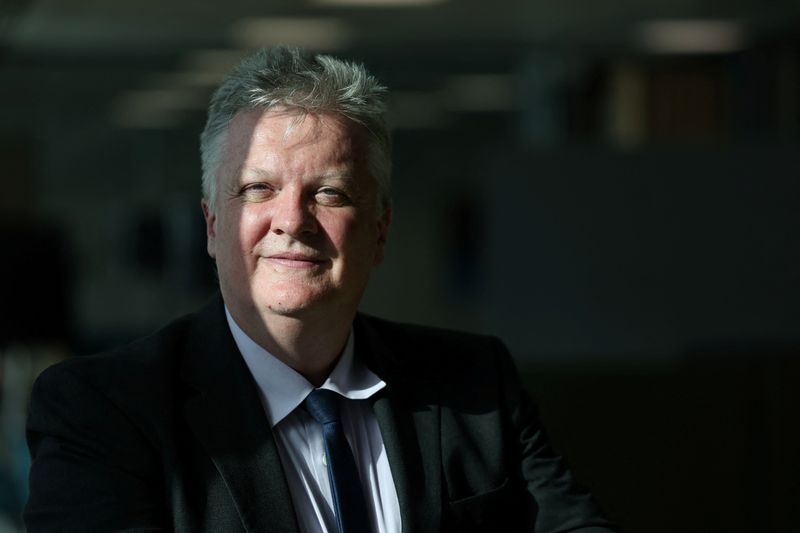LONDON (Reuters) -Bank of England Chief Economist Huw Pill said labour market data released earlier on Tuesday showed inflation pressures in Britain remained too high for the BoE's 2% inflation target.
"As we saw in the labour market data that was released this morning, pay growth remains quite sticky at elevated levels and levels that - given the outlook for productivity growth in the UK - are hard to reconcile with the UK inflation target," Pill said at a conference organised by Swiss bank UBS.
The BoE last week cut borrowing costs for only the second time since 2020 and said further reductions were likely to be gradual as it assessed the persistence of inflation pressures including from the first budget of Britain's new government.
Pill said Britain might be behind other economies in working its way through the impact of the COVID pandemic and other shocks in recent years, which could help to explain why investors are pricing higher UK interest rates than elsewhere.
While it was not the BoE's base case that Britain would need higher levels of rates to stabilise the economy, that possibility did need to be considered.
"So (given) the fact that we are entertaining that story, it's not surprising that markets are entertaining some of that story," Pill said.

Financial markets only price in 0.6 percentage points of interest rate cuts by the BoE by the end of next year, compared with 1.4 percentage points for the European Central Bank and 1.0 percentage points for the U.S. Federal Reserve.
Pill voted last week with the majority of the BoE's monetary policymakers to cut Bank Rate to 4.75% from 5% but has voted against lowering borrowing costs in other, closer decisions by the Monetary Policy Committee in recent months.